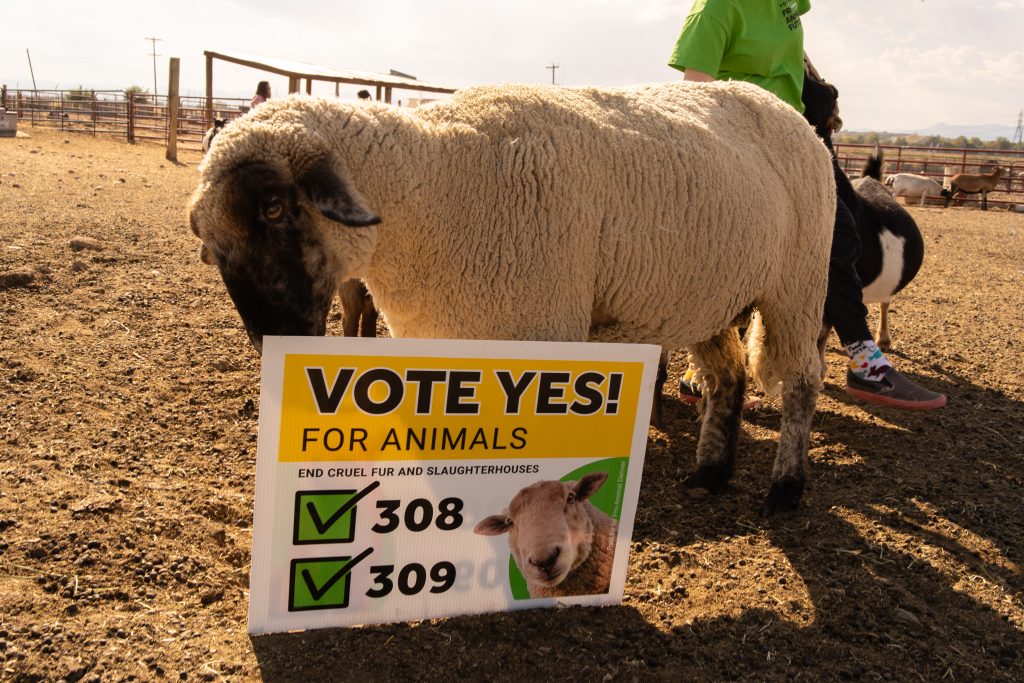Traditional animal activism has raised critical awareness about the suffering of animals in factory farms– but awareness alone hasn’t delivered the formative change animals desperately need.
Many people already oppose factory farming, yet they feel powerless against such formidable industries. In an effort to create more pathways for broader-scale change, Pro-Animal Future is working to engage directly with political systems where these industries are most vulnerable.
Our strategy combines two approaches:
- Running ballot measure campaigns that bring pro-animal legislation directly to voters.
- Building an organized voter bloc to make pro-animal issues politically relevant to elected officials.
By combining these approaches, we’re creating multiple pathways to victory for animals and ensuring that pro-animal policies not only become a mainstream political issue – but a winning one.
Many of the strategic approaches to political advocacy we’ll discuss here were inspired by Julie Lewin, founder of Connecticut Voters for Animals, whose groundbreaking book Get Political for Animals has helped pave the way for how the pro-animal movement engages with political systems. Her insights were foundational in developing our voter bloc strategy.
Creating Political Incentives: How to Speak the Language of Elected Officials
Traditional animal advocacy often relies on moral appeals – what we call “pretty-please lobbying” – asking lawmakers to support animals simply because it’s the right thing to do. But when powerful industries with deep pockets are involved, ethical arguments alone rarely win the day.
Effective political advocacy requires an understanding of how elected officials actually make decisions. When considering legislation, lawmakers tend to follow a relatively predictable hierarchy of concerns:
- Will this affect my chances of re-election?
- What’s my party’s position on this issue?
- Can I trade my vote for support on issues I care about?
- Is this good policy?
Most animal advocacy targets the bottom of this list—appealing to a lawmaker’s sense of what constitutes “good policy.” But real influence comes from affecting their primary concern: re-election. When legislators believe supporting animal protection will help them at the ballot box, our issues suddenly become a priority.
From ‘Fringe’ Issue to Electoral Force
Even a relatively small but disciplined group of voters can tip the scales in close elections. By organizing animal advocates into a unified voting bloc, we demonstrate to candidates that supporting animal protection translates directly to electoral success.
This means strategic, visible engagement: meeting with elected representatives, showing up to public hearings and city council meetings, and coordinating outreach campaigns to demonstrate that pro-animal voters are organized and politically engaged. When lawmakers see that animal advocates can mobilize enough votes to affect their re-election, supporting animals becomes a politically smart move – not just a moral one.
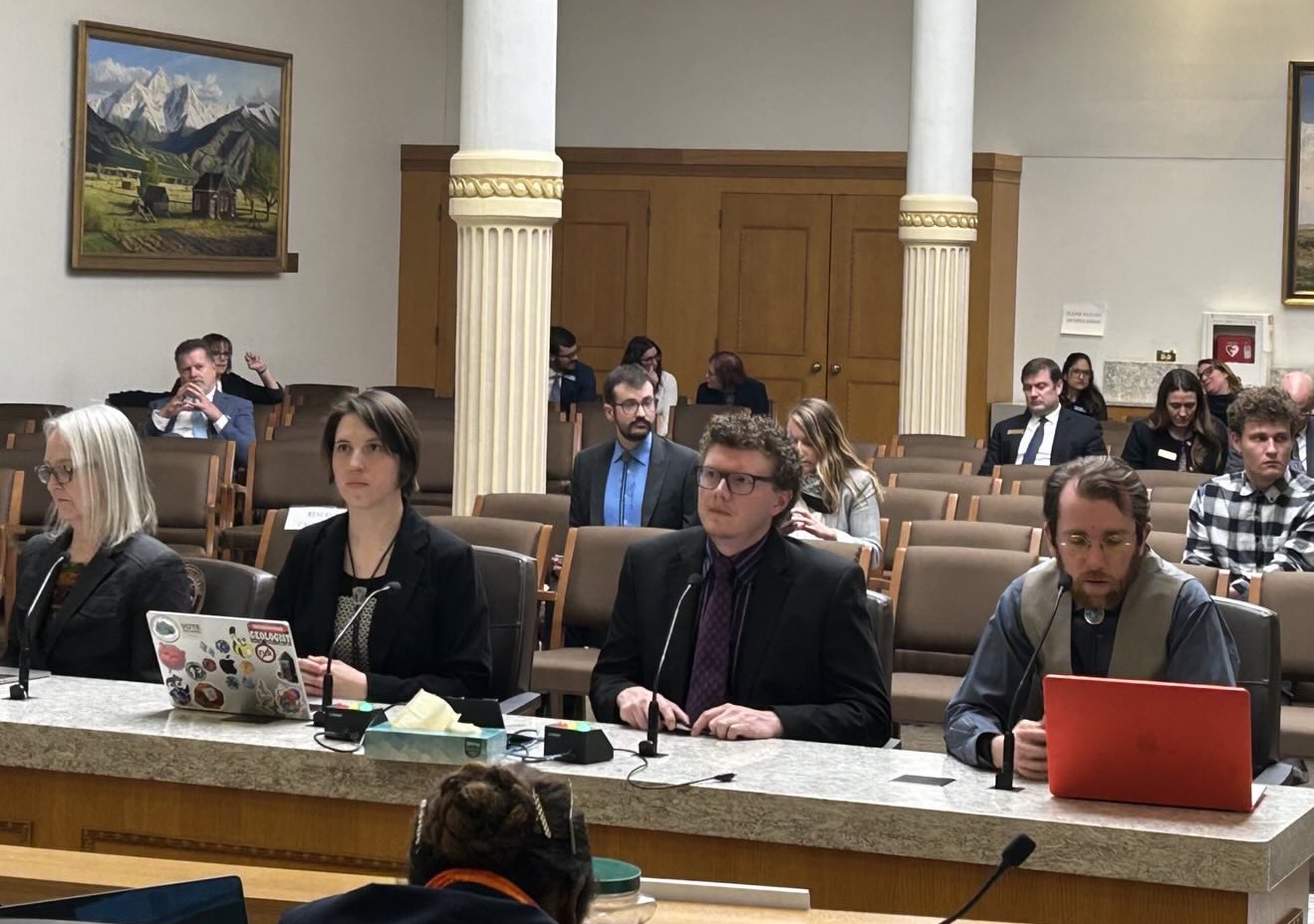
Creating Multiple Paths to Victory
With this in mind, PAF’s strategy combines two approaches to political advocacy, maximizing our impact by working both inside and outside traditional political structures. By using these strategies in tandem, we create a powerful feedback loop that amplifies our effectiveness.
I. Ballot Initiatives: Bringing Pro-Animal Policies Directly to Voters
Ballot measures attract allow us to bypass reluctant legislators and take more progressive policies directly to voters to decide. These campaigns follow three strategic phases:
Phase 1: Preparation – Ballot campaigns require months of meticulous work – conducting comprehensive research, examining existing laws, commissioning polling to gauge public support for different policies and messages, seeking policy feedback from allies – and integrating all of this information to inform our path forward.
Phase 2: Signature Gathering – Qualifying for the ballot requires hitting a threshold of voter signatures. This phase is democracy in its purest form: we have conversations with thousands of voters, explaining our measures and collecting signatures at farmers markets, parks, and public events.
Phase 3: Campaign – Once we qualify for the ballot, we mobilize in four core areas:
- Field operations: We conduct direct voter outreach through activities like canvassing, writing postcards, tabling at community events, and a variety of other activities with the primary goal of reaching undecided voters.
- Strategic paid media: Using precise targeting to maximize our limited advertising budget, we use a range of paid channels to reach specific voter demographics. These include social media, podcasts and streaming, search ads, and strategic billboard placements in high-traffic areas.
- Earned media: We look to cultivate relationships with journalists, place op-eds from influential messengers, and capture headlines with splashy campaign activities and updates.
- Key endorsements: We pursue endorsements and campaign support from influential groups, particularly those who can reach demographics beyond our core supporters.
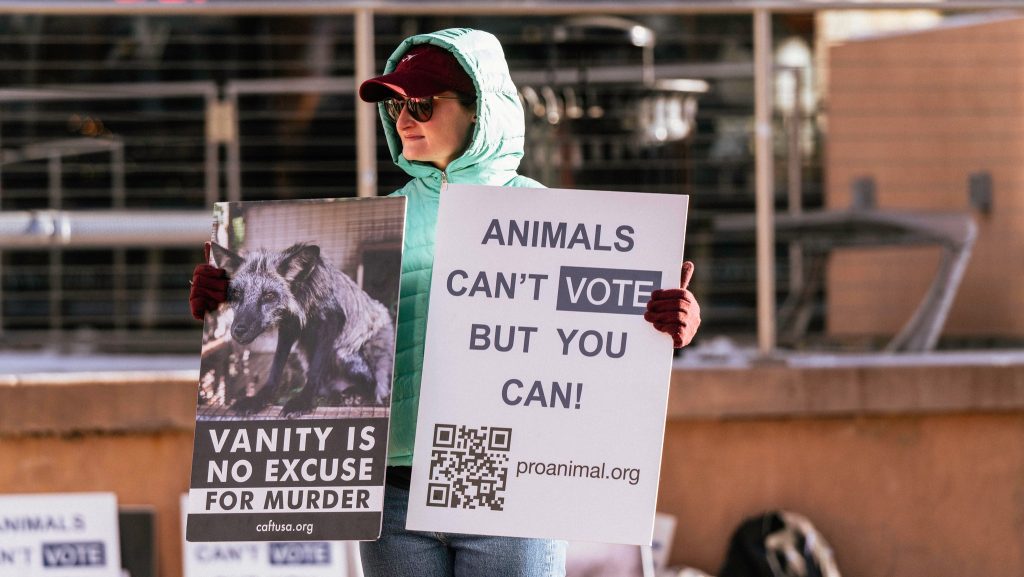
II. Voter Bloc Organizing: Building Political Muscle
While ballot initiatives have the potential to create immediate policy change, our voter bloc strategy builds lasting political power. In essence, our voter bloc is an organized community which includes those actively engaged in our campaign, as well as those simply committed to using their votes to advance animal causes.
While animal rights currently exist on the fringe of political discourse, a disciplined voting bloc can transform them into mainstream issues that politicians must address.
Our voter bloc strategy works through three coordinated phases:
- Building the bloc: We systematically identify and organize voters who prioritize animal issues.
- Election mobilization: During campaign seasons, we flex our bloc’s electoral value by providing pro-animal candidates with what they need most: voters, donors, and volunteers. When candidates see animal advocates delivering these crucial resources, they take notice.
- Legislative leverage: During legislative sessions, we maintain our bloc’s power through coordinated legislative advocacy campaigns and year-round engagement with elected officials.
Even a relatively small but organized bloc can determine outcomes in tight races and primaries where margins are slim. This approach makes supporting pro-animal policies a strategic political move for elected officials.
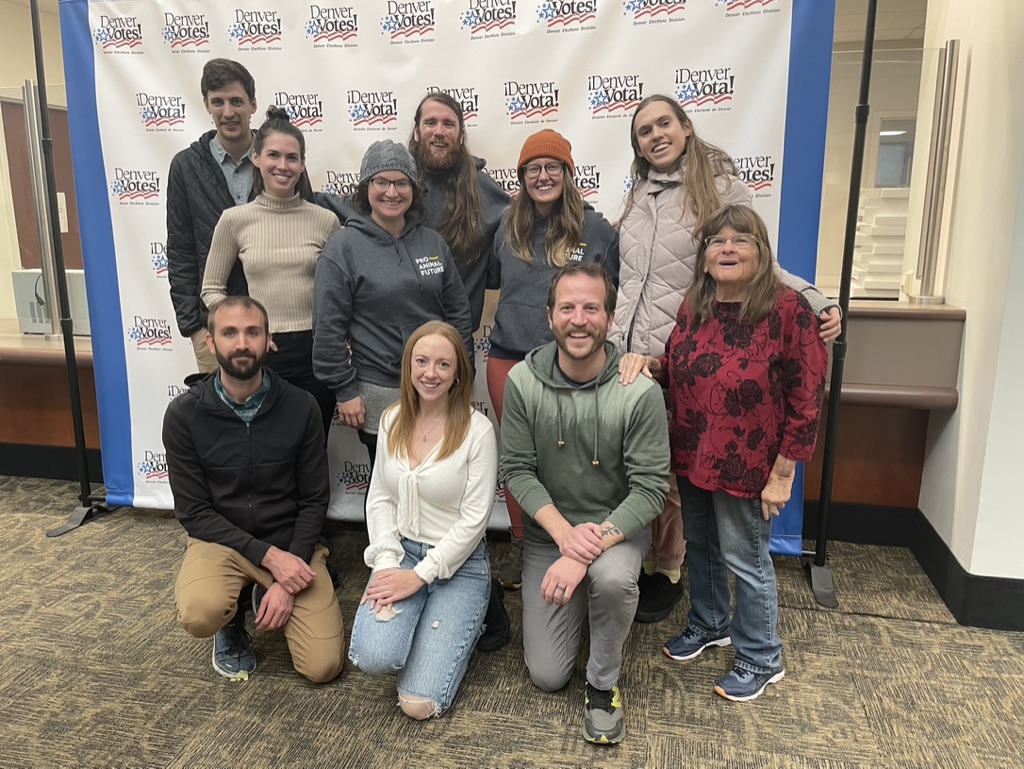
Multiplying Our Impact: The Feedback Loop of Political Change
These two approaches work harmoniously to create a powerful feedback loop. Our ballot initiatives raise public awareness and bring issues directly to voters’ ballots, while growing our voter bloc helps strengthen the political relationships that make ballot campaigns more successful.
While we pursue transformative policies through ballot initiatives, we can also achieve incremental wins though the legislature by appealing to more traditional power centers like elected officials and political parties. Our voter bloc work embeds us in local political networks, while ballot campaigns offer greater visibility to build awareness and shift public perception on key pro-animal issues.
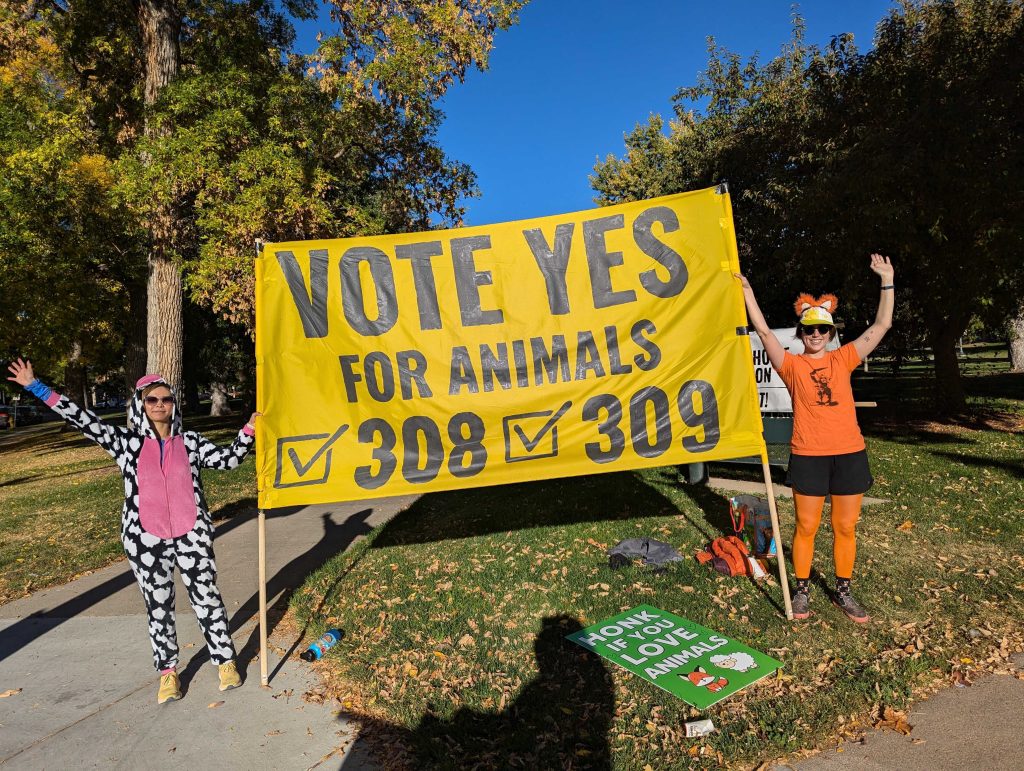
Why Political Strategy Could Change the Game for Animal Advocates
Politics ultimately comes down to one thing: power. For too long, animals have had virtually none in our political system, leaving advocates to rely on moral arguments against industries with deep pockets and entrenched influence. This two-pronged approach aims to change this fundamental imbalance.
The millions of Americans who care deeply about animals represent untapped potential for transforming pro-animal policies into a political priority. By organizing a coordinated voter bloc and continuing to bring policies directly to voters, we can convert compassion into concrete policy wins that improve animals’ lives today while laying the foundation for greater political power and more ambitious policy down the road.
Whether you’re looking to take action to help pass pro-animal legislation, power our campaigns with a donation, or commit to voting as part of our bloc, there’s a meaningful role for you in this movement. With this strategy, we can do more than ask for legislative change – we can build the political power necessary to create it.
